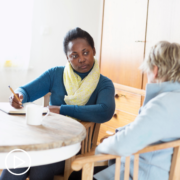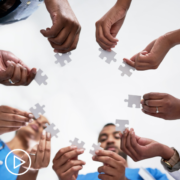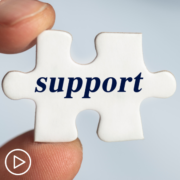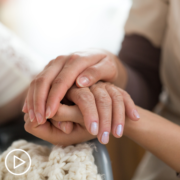How Can a Social Worker Help CAR T-Cell Therapy Care Partners?
How Can a Social Worker Help CAR T-Cell Therapy Care Partners? from Patient Empowerment Network on Vimeo.
What support can CAR T-cell therapy care partners expect from social workers? Licensed clinical social worker Marc Paloma shares how social workers support care partners and patients before, during, and after the CAR-T process. Marc Paloma is an outpatient hematology/oncology clinic social worker at University of Chicago Medicine.
See More from The Care Partner Toolkit: CAR T-Cell Therapy
Related Resources:
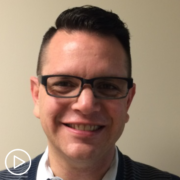
|

What Are Common Emotional Issues CAR T-Cell Therapy Care Partners Face? |

CAR T-Cell Therapy Care Partners: What Questions Should Your Ask the Healthcare Team? |
Transcript:
Katherine Banwell:
What is your role in helping CAR T-cell therapy care partners?
Marc Paloma:
So, here at the University of Chicago Medical Center, every patient who’s identified as going through the CAR T process, I meet with them and their care partner right when they’re identified as candidates for CAR T. There’s a full social work psychosocial assessment that gets completed. It’s an 80-question questionnaire that involves the patient and the care partner both just asking all kinds of questions about the support that they have, how they’re coping. Just lots of very practical kinds of questions about have you completed your power of attorney, and do you understand the process of the CAR T? So, I find that I’m picking up on providing support to the care partners when I’m doing that initial assessment.
And then throughout the process after the patient goes through the CAR T process hospitalization and when they’re coming back for their follow-up visits. So, I can do lots of sort of follow-up check-ins with the care partners, see how they’re doing, how they’re coping, how things are going. I also try to make sure that I foster an open dialogue with the patient and the care partner. Again, since so that it’s at least being said out loud that the care partner is also going through their care – their parallel process of being the care partner and what it’s like for them and that it can be stressful.
That often leads to a little bit of a conversation sometimes of balancing between the patient’s feeling sometimes of “I’m being a burden to my care partner, I feel guilty about doing that.” And then the care partner’s feelings of, “No, you’re not being a burden. Of course, I’m going to do this for you because I’m your,” spouse or your partner or your sister or whatever.
And so I try to foster that open dialogue between the care partner and the patient so that they both sort of know this is what we’re feeling and it’s not just being kept inside. That it’s actually being spoken out aloud. I just and I think that is just helpful because that’s just sort of lets the partnership – the partners know kind of what’s going on. You’re actually talking out loud. And I feel that as the social worker, I’m able to facilitate that communication, so.

